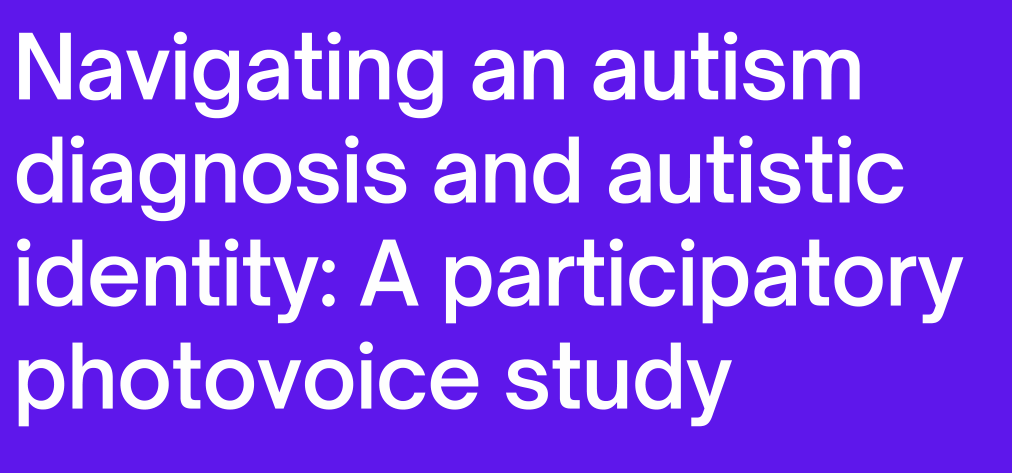At INSAR, Dr Botha and Dr Cage co-chaired a panel on autism stigma, which brought together cutting-edge and novel research exploring autism stigma from the perspectives of non-autistic and autistic researchers, using a range of methods, in different settings, from multiple geographic regions. Stigma involves the discrediting of an identity or a negative perception of differentness. Research shows that autism is a stigmatised identity, with non-autistic people holding negative biases against autistic people. Furthermore, stigma can be a life-limiting experience for autistic people: exposure to stigmatising events and attitudes relates to worse mental health outcomes and higher psychological distress for autistic people both in cross-sectional and longitudinal studies. Therefore, understanding stigma is an important topic within research, in order to reduce and prevent stigma.
The panel consisted of four talks, which covered the following topics: Dr So Yoon Kim and colleagues from Duksung Women’s University (Seoul, South Korea), Yonsei University (Seoul, South Korea), and Department of Psychology, City University New York (United States), presented their work on “A Cross-Cultural Comparison of Stigma Toward Autism in the US and South Korea”. Their study was a cross-cultural comparison of autism stigma in South Korea, a relatively collectivistic and ethnically homogeneous country, and in the US, a relatively multicultural and individualistic country. Overall, 296 American and 494 Korean participants completed online surveys. The researchers found that Koreans reported higher autism stigma than Americans. Heightened vertical individualism, less accurate autism knowledge, less pleasant and frequent previous contact with autistic people, and higher cultural tightness predicted greater stigma.
Dr Eilidh Cage presented work with Taylor Doyle, a former Stirling MSc student, on “Investigating the Implicit and Explicit Attitudes of Primary School Educators in Scotland Towards Autism”. This study aimed to investigate Scottish educator’s explicit (i.e. conscious) and implicit (i.e. unconscious) attitudes towards autistic children, and to understand the relationships between educator’s attitudes, knowledge and experience. Seventy primary school educators working in Scotland took part, completing measures of attitudes and knowledge about autism. Overall, participants held positive attitudes towards autistic children in both explicit and implicit attitude measures, although 24% showed negative implicit attitudes. Younger educators with less experience had more positive attitudes, perhaps reflecting societal changes in perceptions and greater exposure to autistic experiences in recent years. Enhanced knowledge also predicted more positive attitudes.
Dr Monique Botha and colleagues from the University of Surrey and UCL presented their work entitled ‘“It’s Being a Part of a Grand Tradition, a Grand Counter-Culture”: A Qualitative Investigation of Autistic Community Connectedness, Stigma, and Identity.’ This interview study with 20 autistic people looked at autistic people’s experiences of the autistic community, and noted how stigma and discrimination seemed to push autistic people towards autistic community connectedness (ACC), whereas an internalisation of that stigma seemed to push people away. Three domains (belongingness, social, and political connectedness) appear to inform the broad construct of ACC. This community level togetherness may provide a form of social resource to help protect against stigma and discrimination, and work to further the political causes of the autistic community.
Finally, Desi Jones and colleagues from the University of Texas at Dallas presented their research on “Effects of Autism Acceptance Training on Explicit and Implicit Biases Towards Autism”. This study aimed to determine whether training to improve autism knowledge and familiarity in non-autistic adults is associated with more favourable attitudes about autism. A total of 238 non-autistic adults were randomly assigned to one of three conditions: 1) autism acceptance training, 2) mental health training, or 3) a control condition. They found that a brief video training about autism was associated with more accurate autism knowledge and more favourable attitudes towards autism compared to the general mental health training video and a control condition. However, the benefits of training were restricted to explicitly held attitudes, with negative implicit beliefs about autism present across training groups.
The panel was followed by a reflection on the four talks by Dr Jac Den Houting (Macquarie University, Australia) and a question and answer session with attendees. The discussion covered topics such as intersectional stigma (what happens when someone has multiple minority identities?), internalised stigma (how can we prevent the internalisation of all the stigma autistic people are exposed to?), and the role of society and in particular autism researchers in perpetuating autism stigma. Although we are making progress, there is clearly still a long way to go.
If you have any questions about this panel, please contact Dr Eilidh Cage and Dr Monique Botha (eilidh.cage@stir.ac.uk & m.d.botha@stir.ac.uk).




